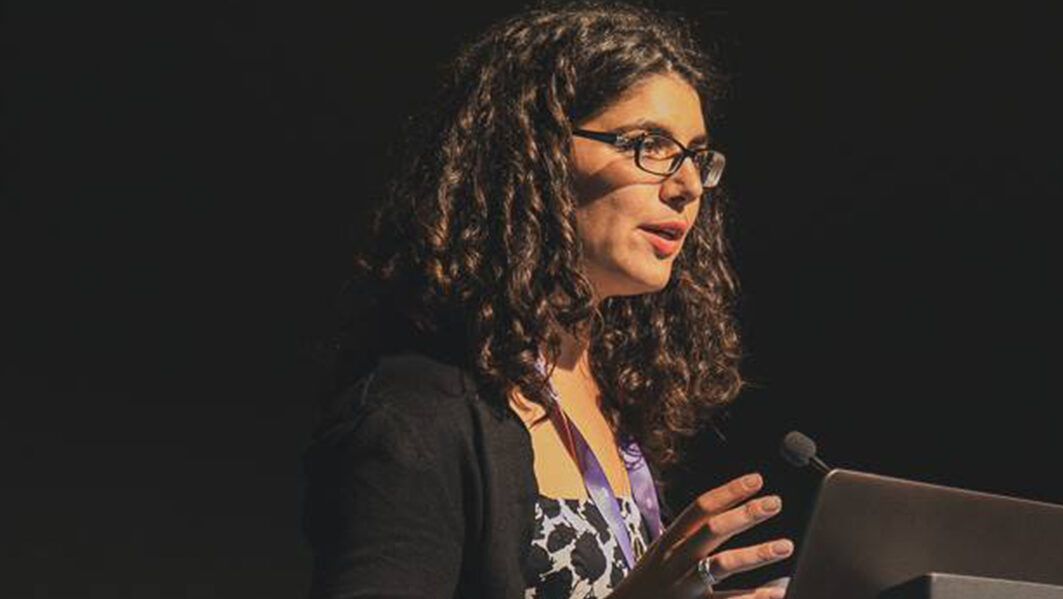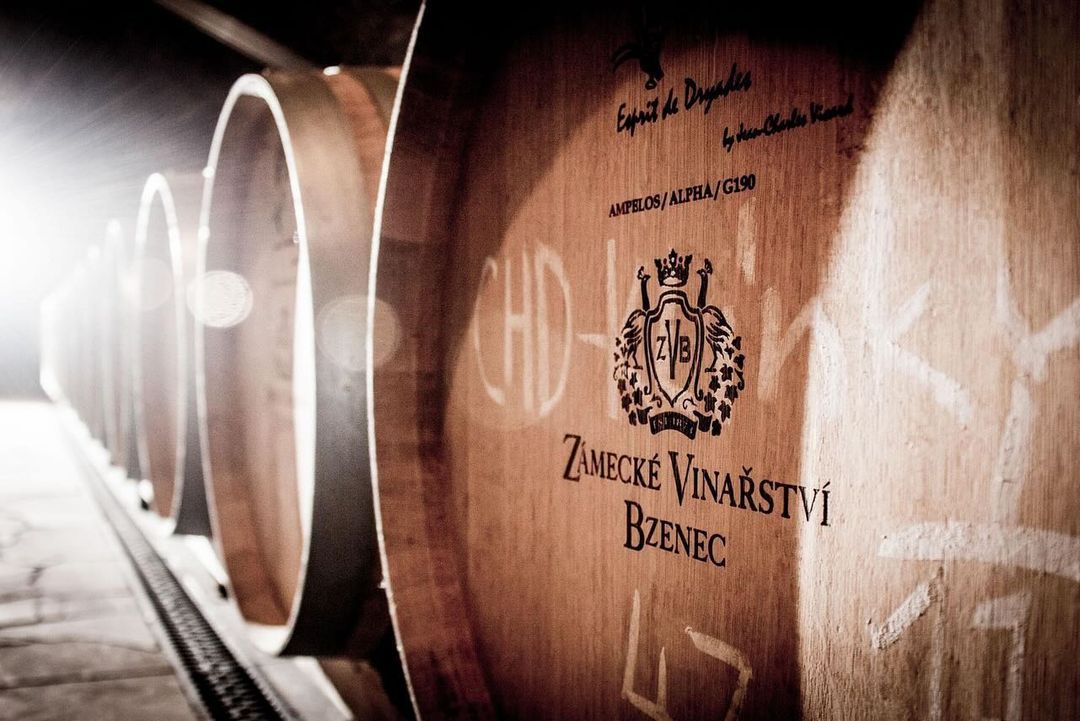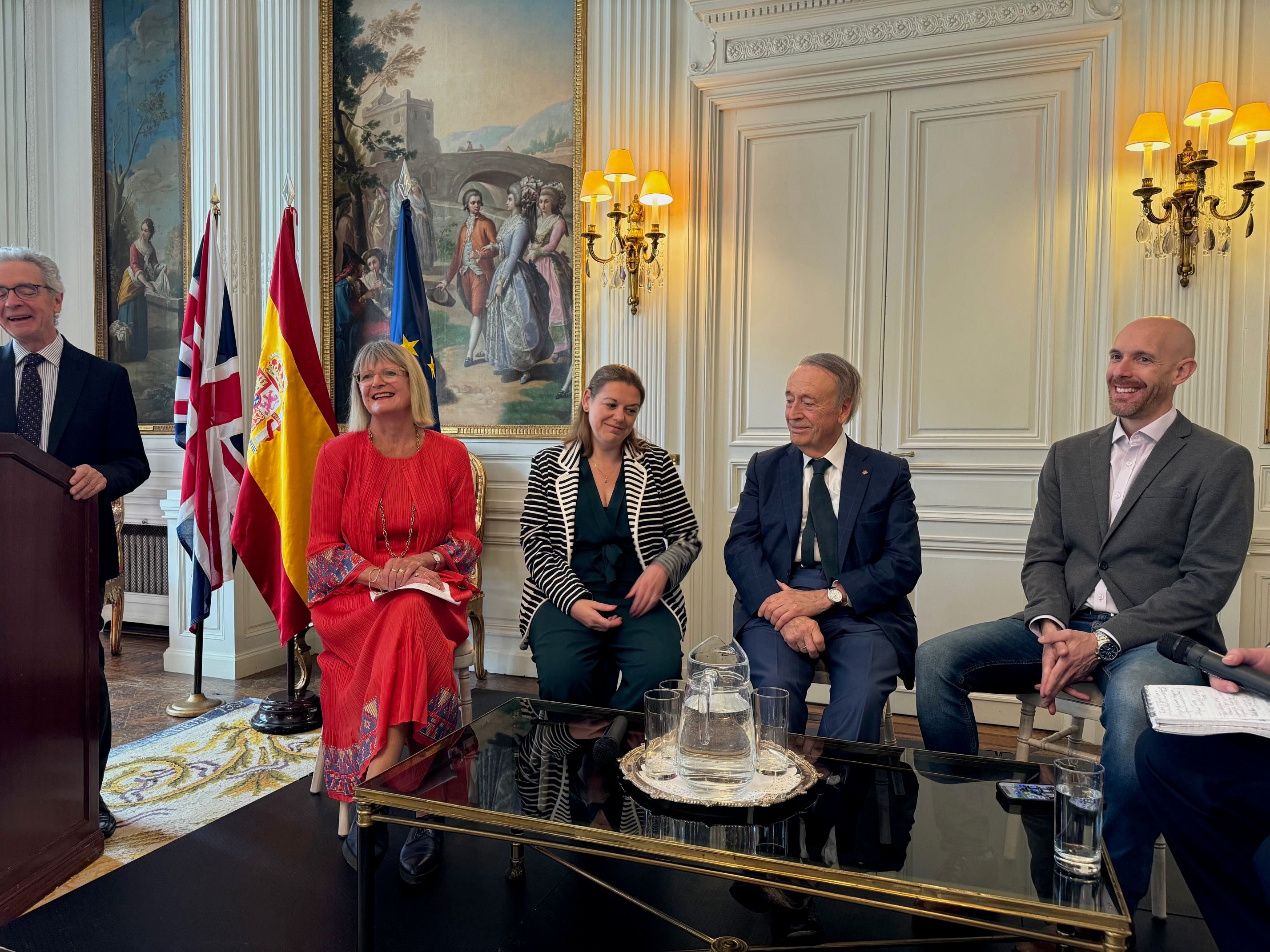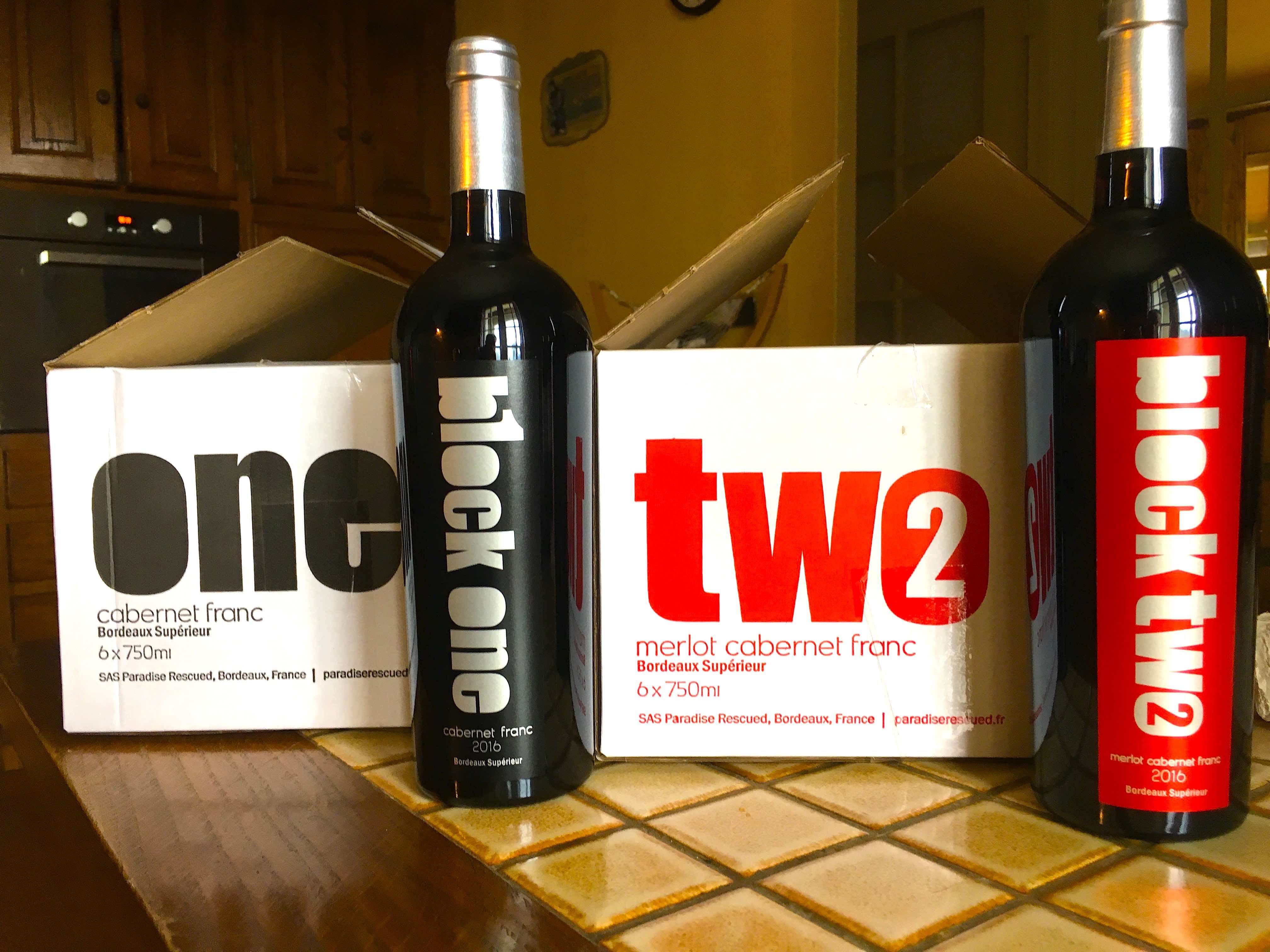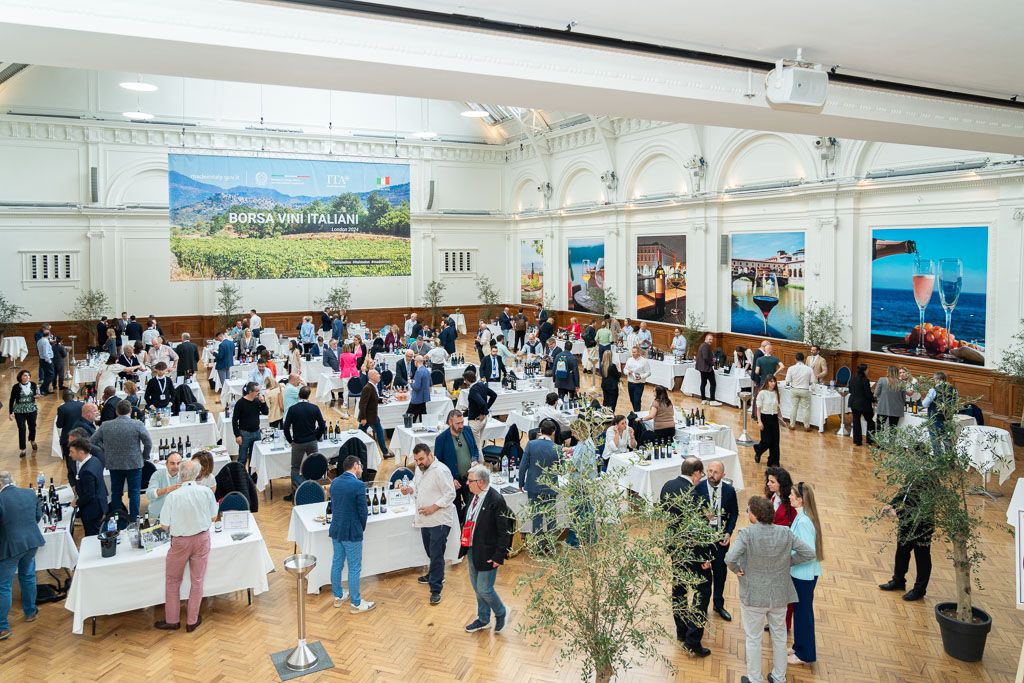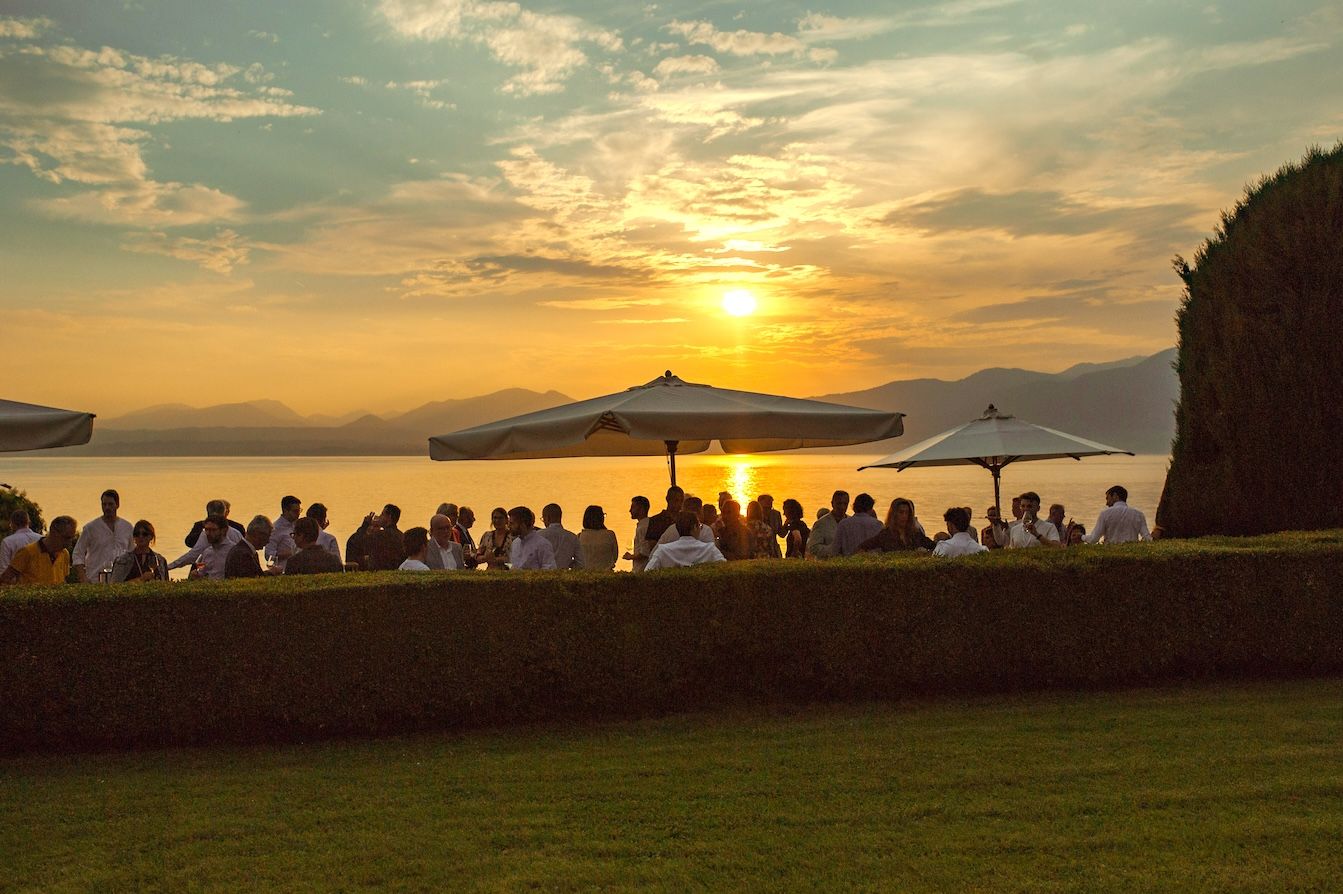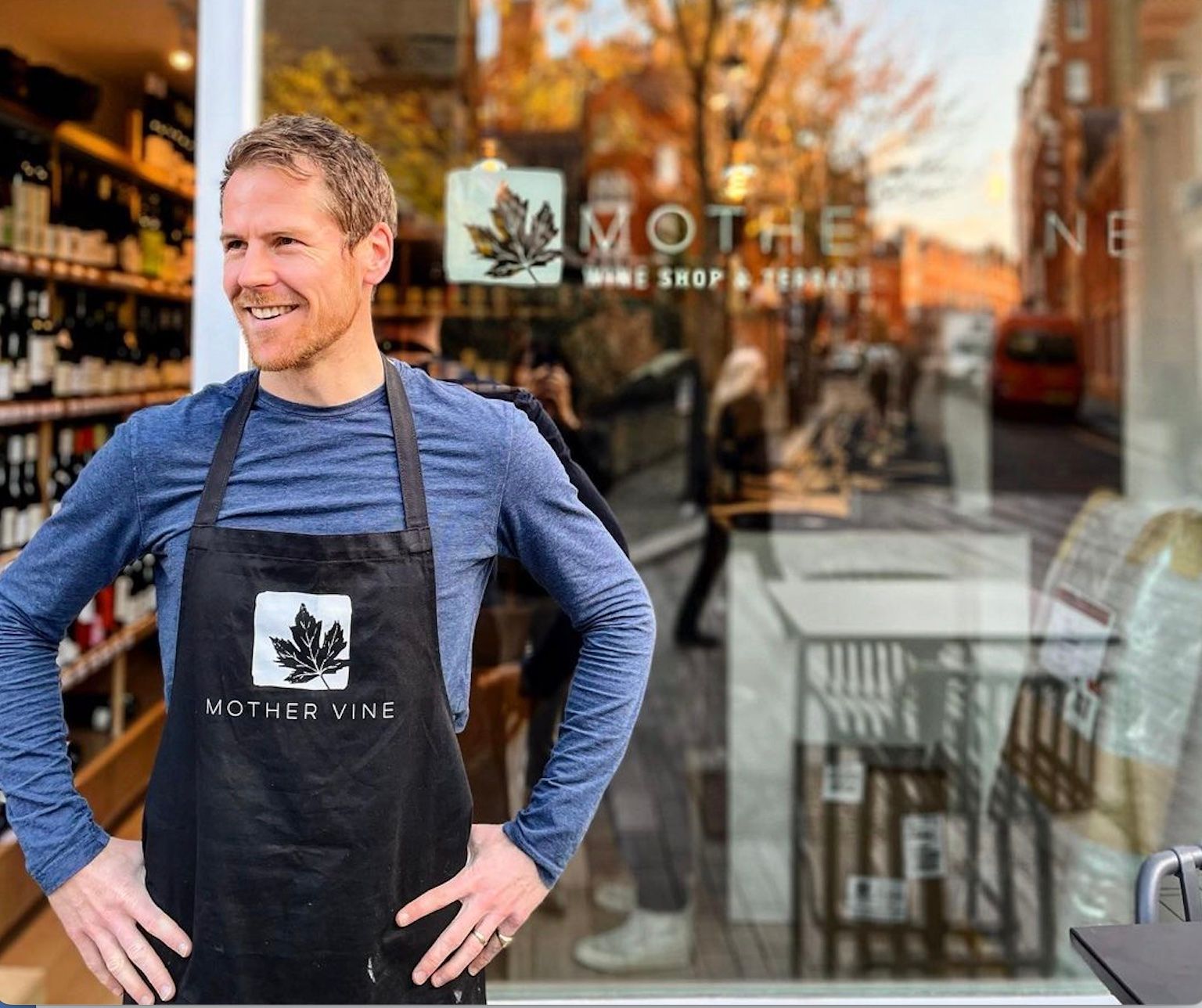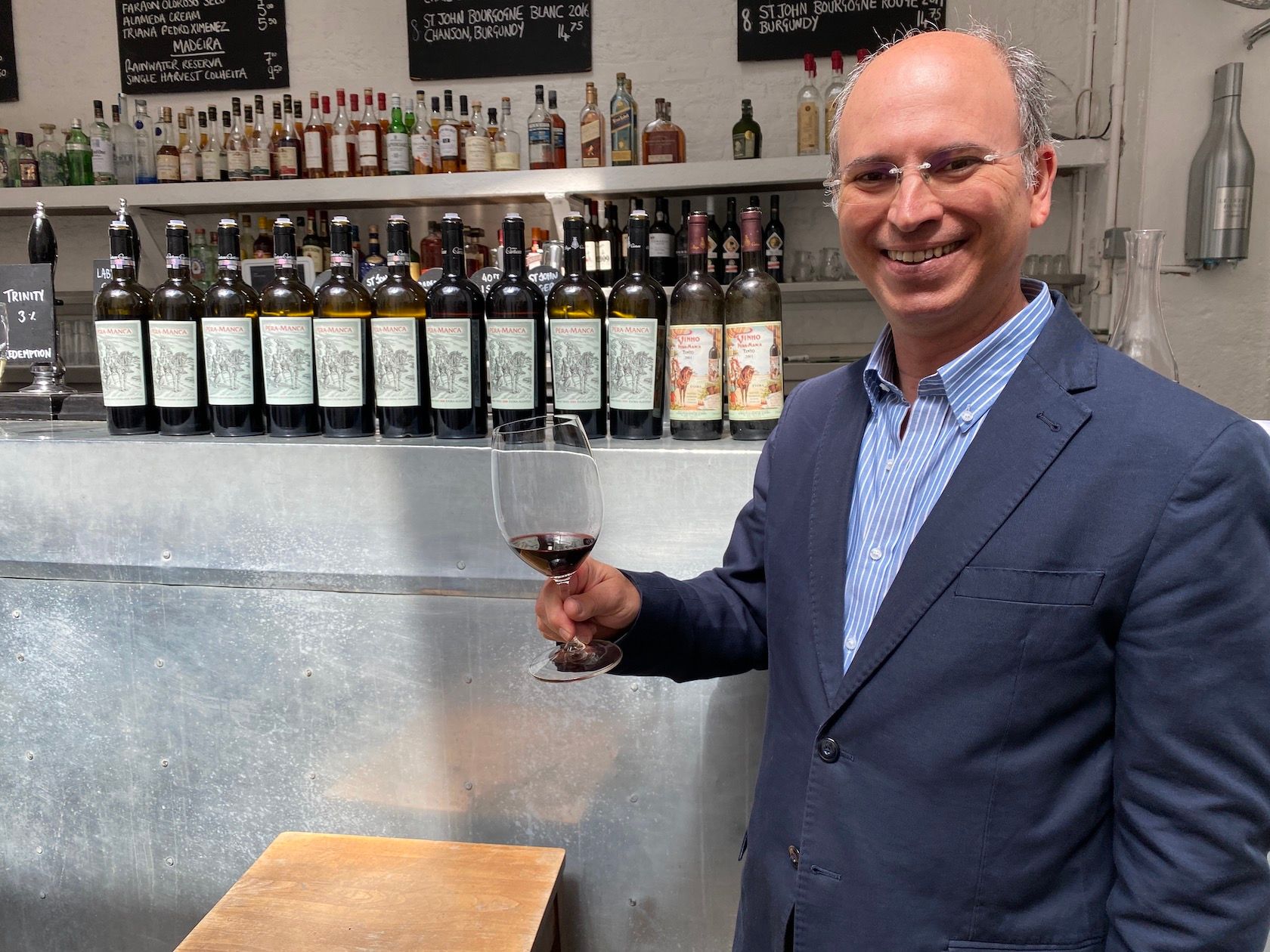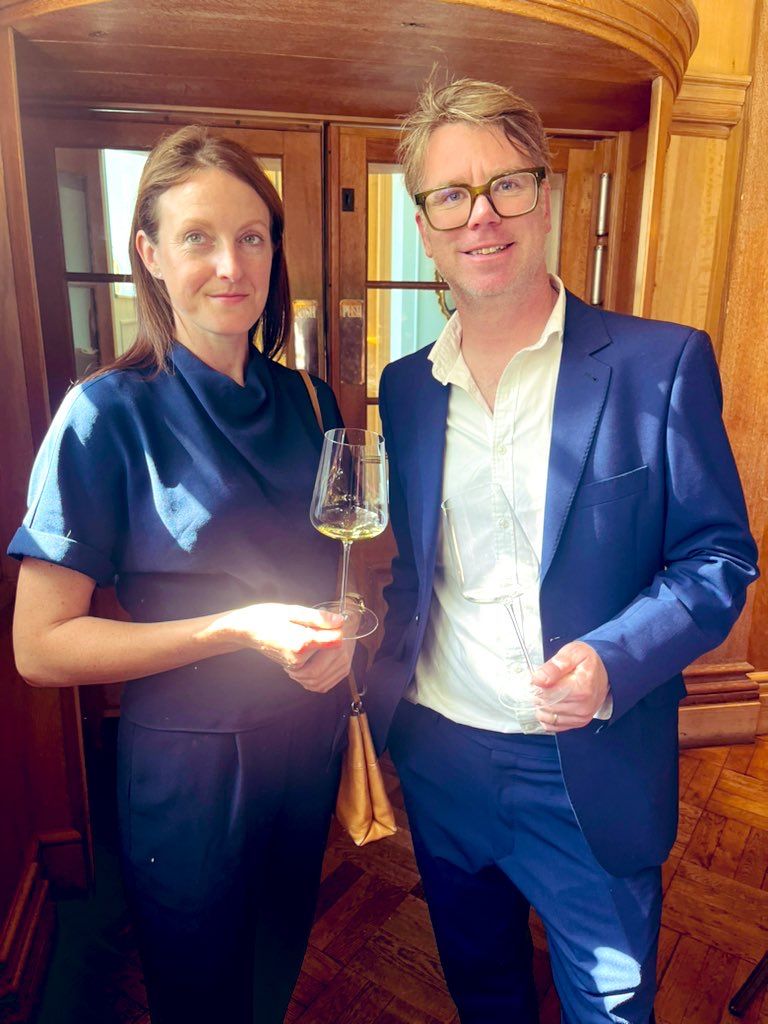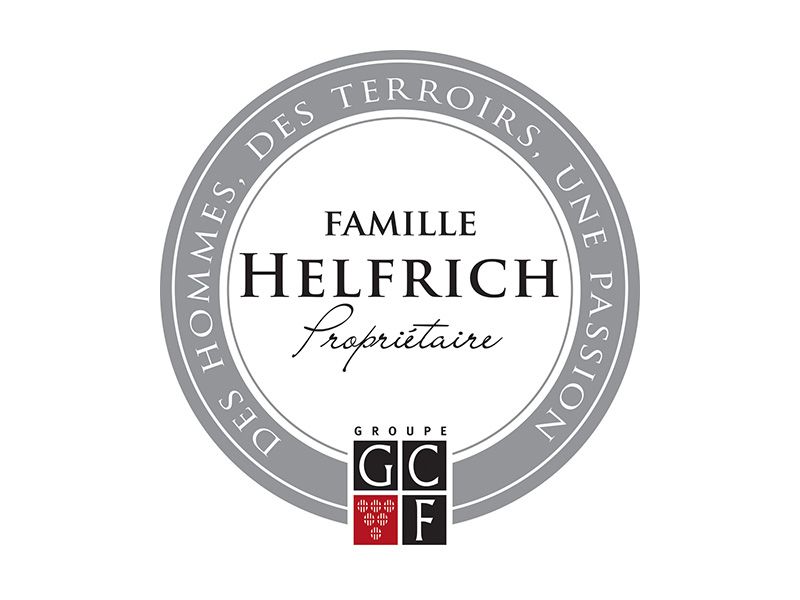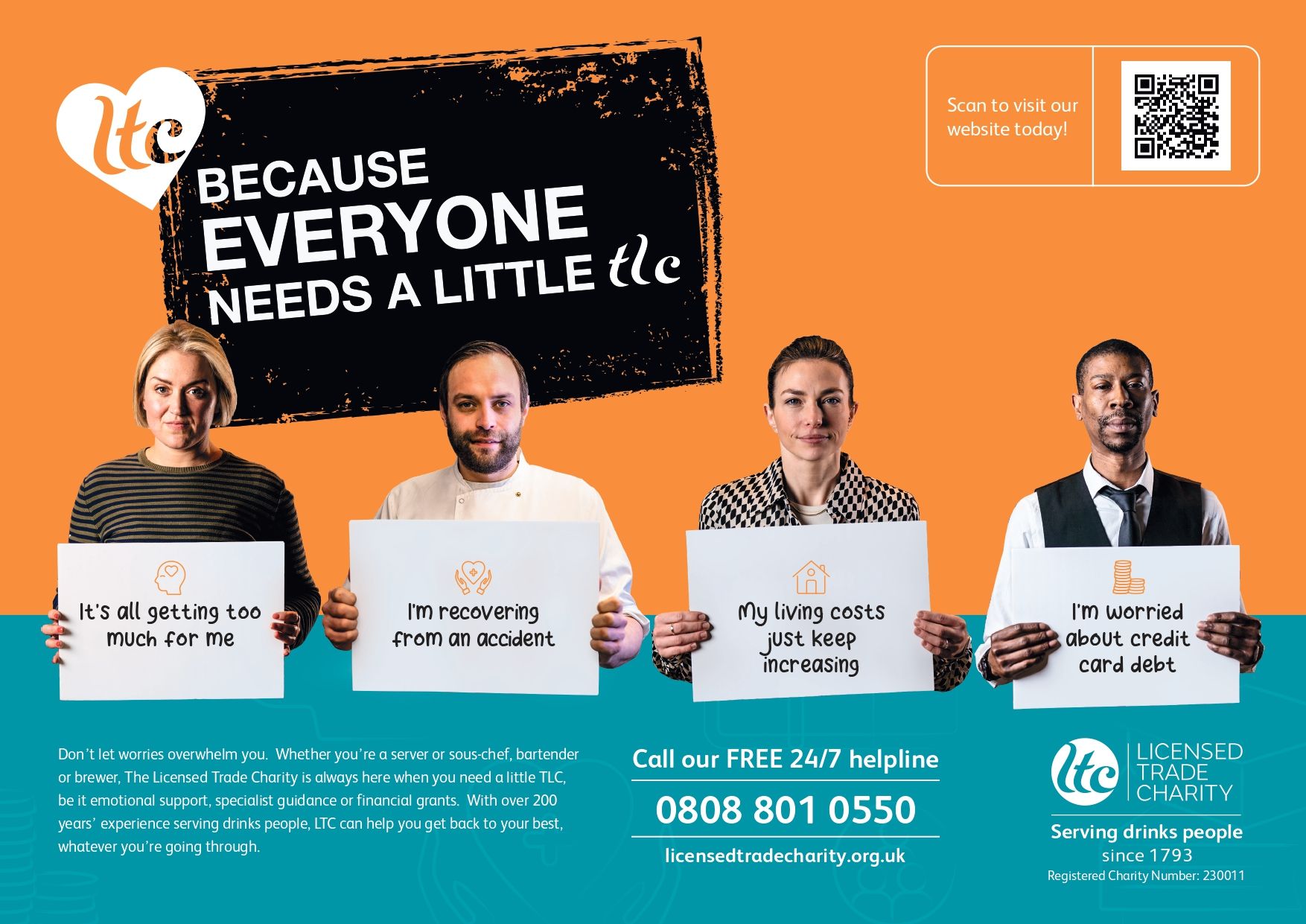ARENI Global has come a long way in only a few years in setting new standards, benchmarks and a framework for the fine wine world to work and promote itself better.
For those that don’t know ARENI, can you explain the background to the business and what its key objectives are?
ARENI Global is an independent think tank dedicated to the future of fine wine. Our mission is to help companies and decision makers build a sustainably secure, prosperous and just industry.
I think of it as a place, either physical or digital, where a diverse group of people can come together to think about global issues and their impact on fine wine; a place where different perspectives can be heard on the challenges and opportunities that we are facing; a place where experts meet to share best practices; a place where we collectively draw a roadmap for the future of fine wine.

Pauline Vicard is the dynamic force behind ARENI Global and how it is helping to shape, define and drive fine wine around the world
Part of our mission is to help fine wine wineries, distributors, and retailers to understand how the world is changing, and how that creates opportunities to be seized and risks to be managed.
To give you the history: It’s the continuation of Fine Minds 4 Fine Wines, a high-level gathering initiated by Nicole Rolet in 2017. Nicole and I come from very different wine backgrounds, but we share the same belief that solving complex issues needs the input of diverse experts and that in-depth conversations produce the best results.We now offer analysis and insights in six different formats, from online roundtables, workshops, podcasts, bi-monthly articles, quarterly publications and yearly in-person gatherings.
What are the main ways in which you try and raise and lead the debate around fine wine?
In three ways.
Firstly, by leading conversations on what fine wine is, and what its role and place in society could or should be. We propose many ways of understanding fine wine and what it stands for.
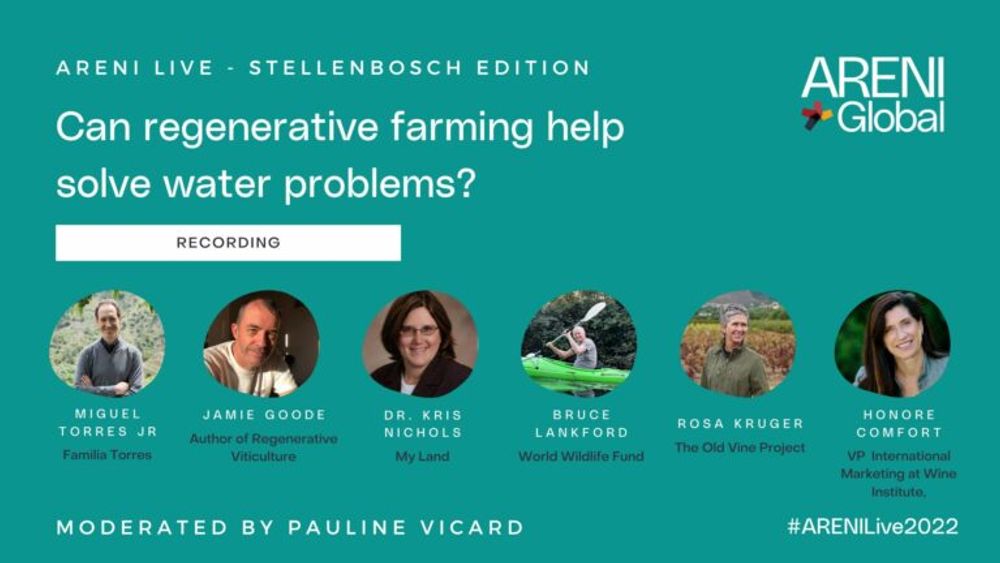
ARENI Global hosts regular forums to raise important and sometimes complex issues around viticulture, fine wine and how the global industry can work closer together
Secondly by placing fine wine in a larger context. There are many platforms in the wine world to discuss technical questions, and if you want to compare and contrast two different rootstocks before planting a potentially great vineyard, chances are you are going to find a lot of information. But if you want to understand how people’s relationship to food is changing, or how the world of top restaurants is changing, or the impact of public health policy on wine sales, there are not many places you can go to find this information.
Lastly, ARENI also focuses on fine wine consumers. Many things are said about wine consumers, and many agencies are proposing interesting work in segmenting and quantifying the wine consumers in different markets. But little was known about the fine wine consumers, who in many cases, have different behaviours, motivations and needs than “regular” wine buyers. Studying and understanding the multi-faceted fine wine consumer is fascinating, and it’s something that very few people provide are doing in wine.
Why do you think fine wine needs to be regarded as a separate category and demands this level of attention?
I am not sure that fine wine needs to be regarded as a separate category – we will debate this very question on January 19 2023 for the Rethinking Fine Wine launch in London.
What I am sure of, is that if fine wine still wants to be traded tomorrow, it then people in the fine wine system need to understand the dramatic social changes happening around it.
There is a growing chance that consumers will begin to be cynical about fine wine, seeing it as an overpriced alcoholic drink reserved for an upper-class gatekeeping elite, whose production not only wastes precious resources such as land and water, but which also creates all kinds of negative environmental and social impacts.
What if we were to lose our social licence to operate? I believe this is a real possibility in the near future. I also believe that making and trading wine will become more complex, requiring many skills that only the most resilient organisations and individuals will be able to acquire.
You place a lot of emphasis on defining fine wine – why and what is the best definition?
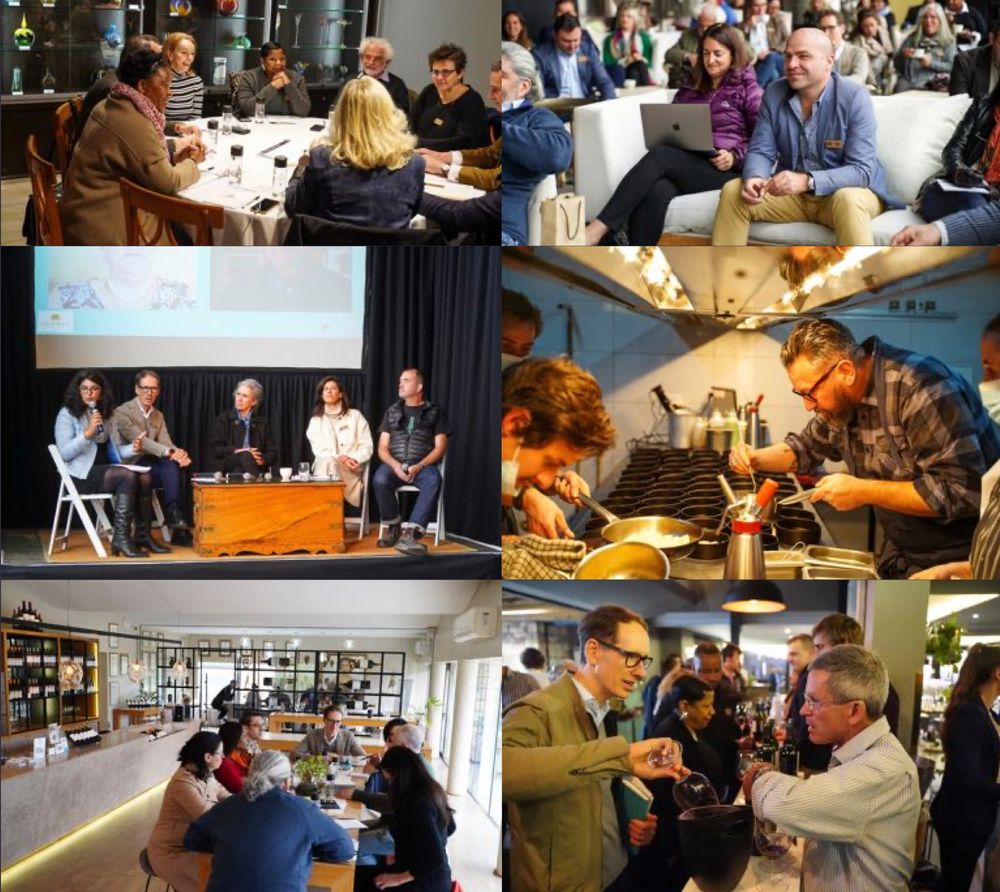
Behind the scenes at the ARENI conference in Stellenbosch in 2022 to discuss fine wine. Click here to read the report from the event
If we don’t know what fine wine is, how can we protect it? And if we want it to be worthy of protection, shouldn’t we not only define what it is, but also articulate what it stands for?
Since 2017, ARENI has interviewed more than 250 members of the fine wine world globally, from iconic producers to renowned journalists and analysts, importers, retailers, sommeliers, marketing agencies and collectors. Every year, part of our Insights programme is dedicated to collecting additional interviews and definitions, and monitoring the changes in how the trade are expressing their views.
The first Define Fine Wine white paper proposed that fine wine had three fundamental attributes: objective intrinsic quality, subjective qualities – what we call today “A Kind of Magic” and the relationship to its maker.
We have now added two more. This is not simply because our work has led us to a more expansive definition, but because the world of fine wine itself has expanded, and the social frame in which fine wine evolves keeps on changing.
This new, updated definition of fine wine will be released through our next white paper, Rethinking Fine Wine, in January 2023.
Is it a delicate balancing act placing so much emphasis on fine wine in such difficult trading times where many wine companies and customers are struggling?
In difficult times, fine wine can’t only be an expensive product, a lavish luxury that only the 0.1% can shamelessly flaunt on Instagram. I believe that in times of crisis, what we expect from leaders – and fine winedoes play a leadership role, though not the only one in wine –is to lead through uncertainties, and actively work to answer some the big challenges of our time.
What do you see as your key achievements to date as a business?
There are many things that we can still work on as a business. But in terms of achievement, I am proud of the community of thinkers that we managed to build over the years, leaders from all around the world, from all generations and multiple ethnicities. The fact that they are actively engaged with us and willing to get together to tackle the hard questions is an achievement on its own, but having leaders in geopolitics, finance, tech, gastronomy, sociology…happily joining the conversation is amazing.
I would like to think that it is a credit to our research programme, and that we are also successful at asking relevant questions that people really want to discuss.
You invest a lot of time and resources into producing your own studies and research into fine wine – can you explain what you do?
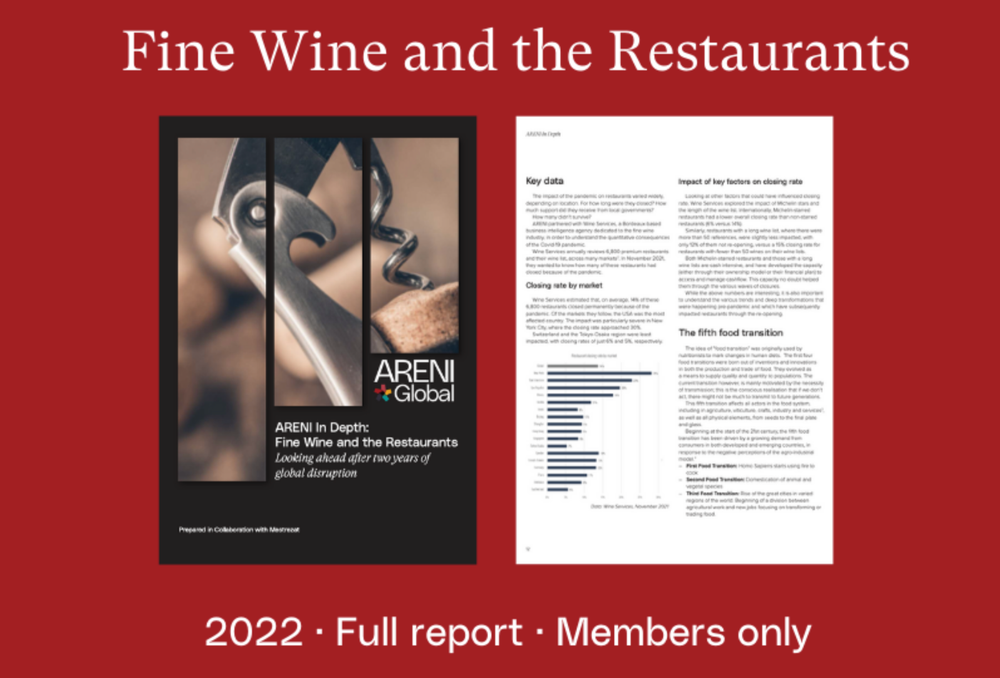
An example of the kind of research papers that ARENI Global produces
ARENI In-Depths are a series of publications going deep into a particular matter linked to fine wine and its future. We publish between two and four publications a year. Depending on the theme, the research methodology changes. This year we published a study called Fine Wine and the Restaurants, exploring the impact of Covid on top restaurants and the many changes that happened in the wine lists.
We also published a compilation of some of the best conversations we had all year on the topic of sustainability: 12 Conversations to Look at Sustainability Differently.
We also always have one publication a year focusing on the fine wine consumers, thanks to our great partnership with Bordeaux négociant Mestrezat. In April 2023, we will be publishing the second of our “The Future of Fine Wine Consumers” series, with data on fine wine consumers in six markets: the UK, the USA, Hong-Kong, mainland China, Japan and France.
You are in January releasing your latest white paper Rethinking Fine Wine – can you tell us what we can expect?
“Rethinking Fine wine” is ARENI’s fourth white paper on the topic of Fine wine, the Define Fine wine Project having started since ARENI’s inception in 2017. The research is a mix of quantitative analysis and qualitative insight from leading industry experts, combined with three years of global observations. The white paper delves into key themes, beginning with a proposal to revise the definition of fine wine. It looks at how “fine wine” is understood by both trade and consumers globally and explores who creates the definition across the value chain.
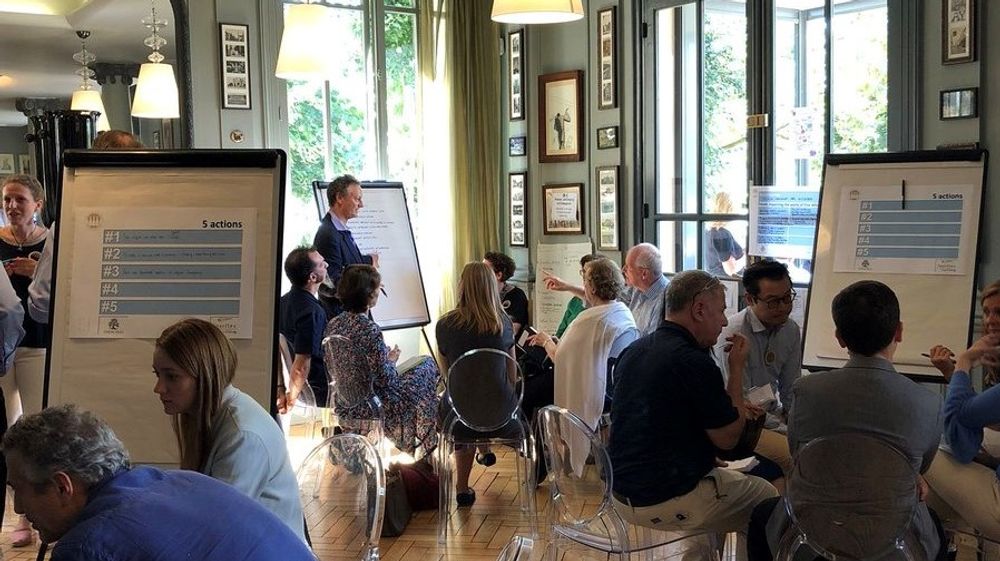
A key part of any ARENI event are the break out sessions that get fine wine experts working together
We will also look at the many disruptions currently challenging fine wine, plus we will make key recommendations and offer takeaways.
Any particular highlights you want to flag up in advance?
Defining what fine wine is and understanding the forces at play in the accession of the status is key. If we don’t know what fine wine is, we can’t protect it, or ensure its relevance in the future. So that would be my highlight number one.
A similarly important task was not only to define fine wine, but to define its responsibilities, and determine the active role that the fine wine ecosystem needs to play to ensure its own success and relevance. This is also a very interesting feature of the white paper.
How do producers and wine businesses become members of Areni – and what do they receive?
It’s quite simple really. To become a member, one only has to define the level of engagement they wish to have with us and the type of access to our analysis they want to get. Associate members get access to all of our articles and podcasts to whitepapers (including Rethinking Fine Wine to be published in January). Full members get unlimited access to all our resources and invitations to join our online roundtables, interactive, online sessions focusing on specific topics relevant to the future of fine wine.
What could producers and wine businesses do to help you more in the work that ARENI is looking to do?
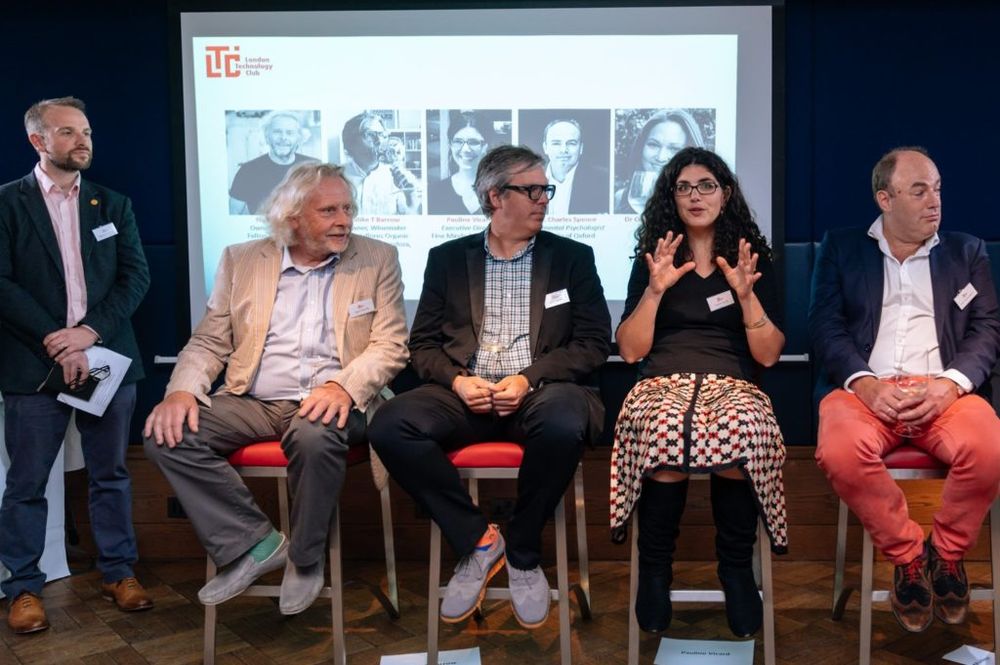
Pauline Vicard speaking at one of the Areni Insights events. Picture Oleg Kungurov
We are working on a couple of very interesting projects, notably to study the many links and differences between fine wine and luxury, and fine wine and art. Not just to compare them, but ultimately to draw lessons from both these sectors in how they currently build relationship with their consumers and society as a whole. We also are reviewing a couple of options for the next step of our work on sustainability, including notably the future of viticulture and respectful drinking. In both cases, we are welcoming partners who could help us bring these projects into action.
What do you see are the big untapped opportunities for fine wine producers?
The opportunities depend on where you currently are , and what your strengths are. To start with what I know best, French producers could gain a lot by working together more, and in finding like-minded people locally to address challenges and maximise opportunities, following some brilliant examples we’ve seen in South Africa for example.
I am also convinced of the power, and value, of the middlemen. Direct sales can only get you so far with fine wine. Second, even if they sell only a few percentages of their wines directly, they should always seek to know and understand their final customers, being both trade (sommeliers and retail people: what do they need, what part of your story are they telling) and consumers.
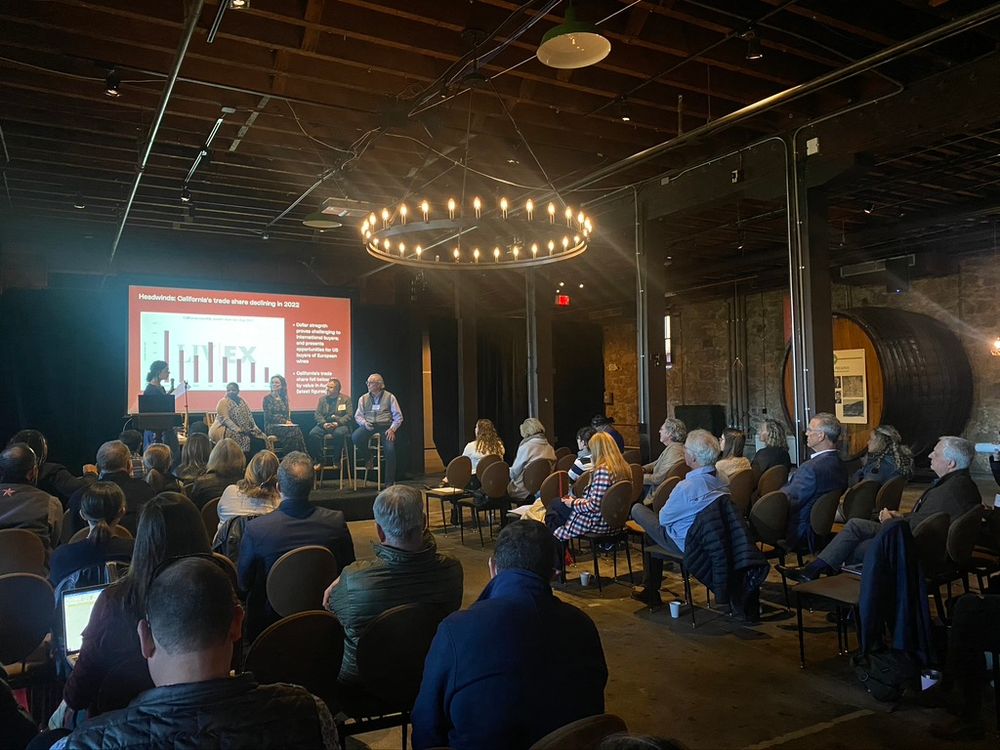
ARENI Global hopes to provide the platform and events for the fine wine community to come together and work closer together
What are the biggest challenges?
The biggest challenges are the same for everyone: our capacity to increase our resilience in the face of climate change, our ability to navigate a disrupted supply chain, our efficiency in attracting workers and talents, our readiness to take into account the many stakeholders impacted by the production-and distribution- of fine wine.
What is your own background and how did you get into wine?
I grew up in wine. More accurately, I grew up in the vineyard. The cellar was a place I was seldom welcomed in, not because I was a female growing up in Burgundy in the 80’s, but because my dad felt that the far-from-state-of-the-art ‘cuverie’ he operated in wasn’t a safe place for kids. Pigeage and décuvage? No, can’t do… But pushing a flaming wheel barrel through the vines to get rid of the vine cuttings right in the middle of the freezing winter month? This I was fit to do. It’s funny how I miss it now. Not the back pain though, nor the burnt eyebrows.
I grew up witnessing the seasons, learning about the intricacies of the vine life cycle, and the impact of bad pruning on the next three seasons. I drove the ‘enjambeur’ with my dad, spraying pesticides and herbicides without using any kind of protection, because that was the way it was done.
Wine matters to me, on a very personal, almost painful level. It is one of the most powerful links I have with my family, my region, and ultimately my country, as wine culture fits so well with the French identity.
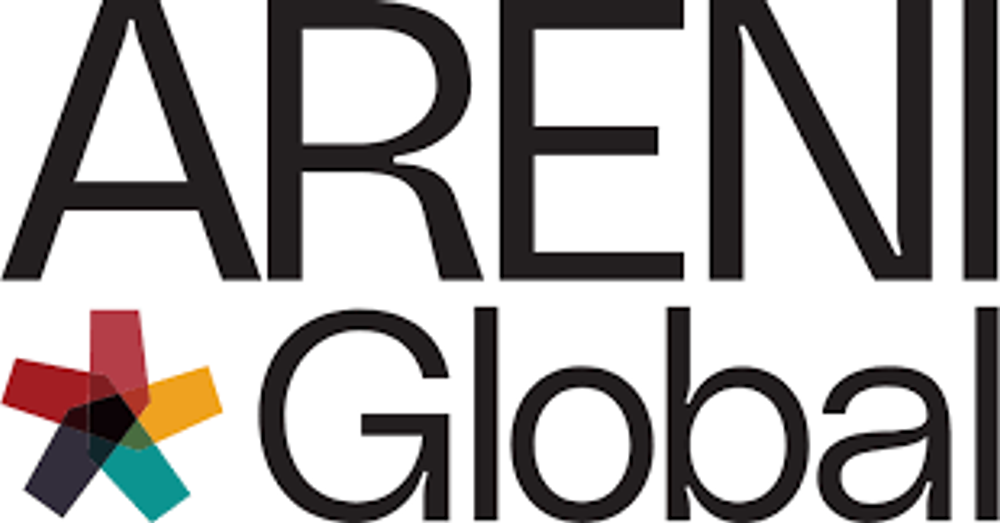
What do you most enjoy about your role at ARENI?
Honestly? Everything. I love what I do. I love being able to ask tough questions and always learning from contributors bringing so many different angles to an answer. I love meeting people that care so much, or so little, about wine, because it always helps putting things in perspective. I love working with people from all around the world, from all generations, ethnicity or class as it adds so many layers in my understandings of the world. I care enormously about the people that I meet, that give up their time to answer my questions and are always so generous with their knowledge. So the least I can do is to turn all of this into something valuable for the industry.
What are your main goals and objectives going into 2023?
2023 will be an exciting year for us. We are launching a brand new podcast season with incredible guests. We are also renewing our Insight Series programme, open to all, and our roundtable workshops for our members. As per the new projects, we will be running our annual think tank from June 20 to 23 in California and we are starting exciting collaborations with key companies – all to be announced soon.
- To find out more about ARENI Global go to its website here.
- To sign up for its Retaining Fine Wine sessions in January then click here.
